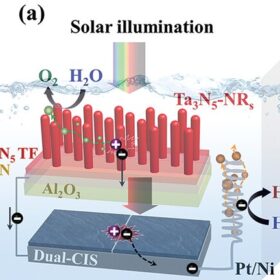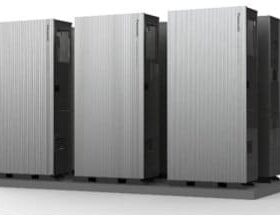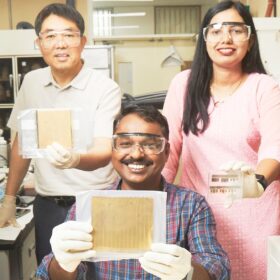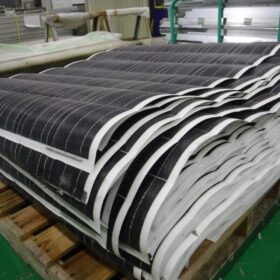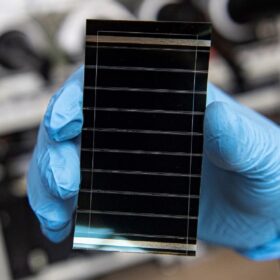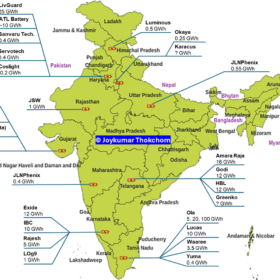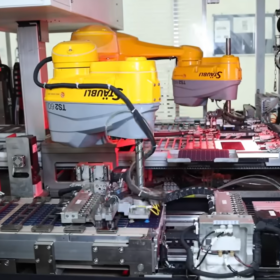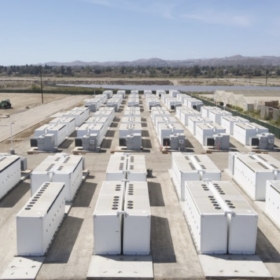The Hydrogen Stream: Water splitting with solar-to-hydrogen efficiency of 12%
A Japanese team is working on a solar water splitting system with a 12% solar-to-hydrogen efficiency, while UK researchers have identified the reason why graphene’s dense crystalline structure is much more permeable to protons.
Engineers India Ltd appointed as independent engineer for battery capacity under PLI scheme
The Ministry of Heavy Industries has appointed Engineers India Ltd (EIL) as independent engineers to monitor the progress of the advanced-chemistry battery cell projects awarded under the production-linked incentives (PLI) Scheme.
ClearVue releases results from first long-term study of clear solar glass
Perth-based ClearVue is making significant strides as its transparent solar windows demonstrate tangible outcomes following a two-year study and published paper.
The Hydrogen Stream: New way to make drug materials from hydrogen
UW–Madison has developed an environmentally friendly approach for producing essential drug ingredients by opting for hydrogen, while India has presented new green hydrogen standards.
All-inorganic phase heterojunction perovskite solar cell with 21.59% efficiency
An international research team has developed high-efficiency solar cells with a 21.59% efficiency rating by using an all-inorganic phase heterojunction approach. The team used an anti-solvent-free DHA method to produce high-quality, inorganic perovskite thin films, resulting in better device performance under ambient conditions.
Wafer formats continue to evolve
Differences in wafer and module specifications, which have bedevilled solar developers in recent years, could now be narrowing.
Advancing circular economy in photovoltaics: The Hot Knife PV module recycling method
Recycling is of significant importance in a circular economy, yet some challenges have to be faced when recycling PV modules. The novel Hot Knife method to separate the crystalline silicon photovoltaic module front glass from the backsheet contributes only a few permill to the life cycle related potential environmental impacts of PV electricity.
First Solar explores potential of quantum-dot solar modules
In a joint development effort with UbiQD, thin-film solar manufacturer, First Solar, is exploring the potential use of quantum dots in enhancing solar photovoltaics.
Combining PV with pumped hydro storage in open-cast coal mines
Indian scientists have suggested building pumped-hydro storage systems connected to solar plants using mines as the lower reservoir and nearby rivers as the upper reservoir. They claim that the proposed combination may reach a levelized cost of energy of $0.2693/kWh.
U.S. startup to produce perovskite glass for tandem modules
Caelux secured series A funding to deploy perovskite glass that can be integrated with existing solar manufacturing processes to boost module efficiency.
